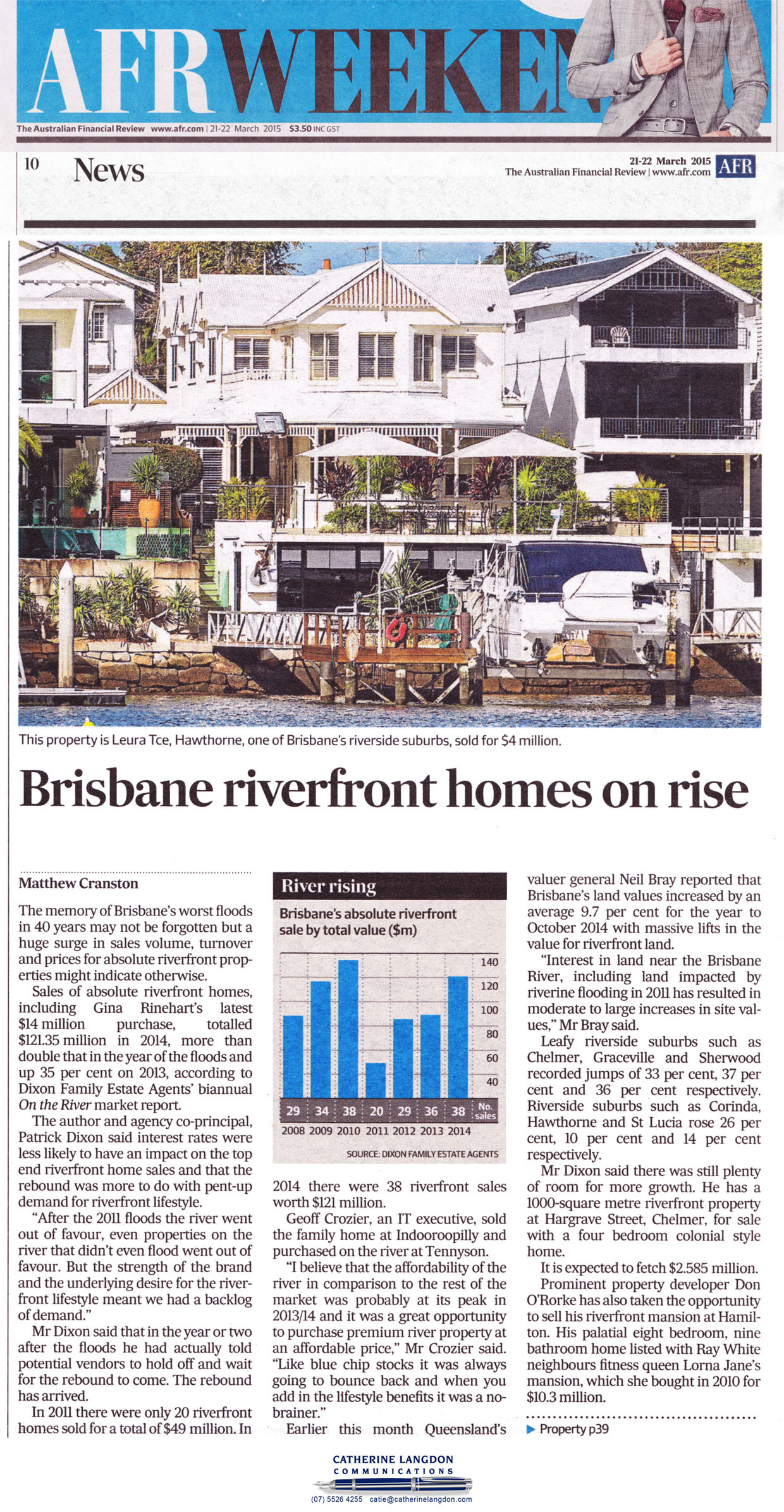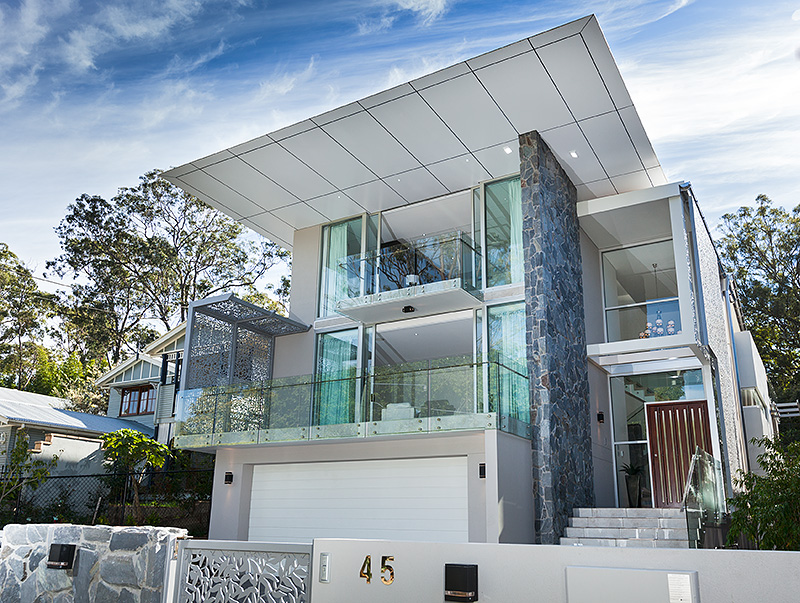Future Realty: Predicting What A Futuristic Residential Property Market Will Look Like
Imagine a world where just owning a house marks you as one of society’s ‘elites’, where living on a main road could actually be desirable, and where you might never move out of home.
These are just some of the future property market realities predicted by Brisbane’s Dixon Family Estate Agents, who’ve applied sci-fi thinking to the industry they know best.
Ironically, they may even have foreseen their own career demise, saying the future could be a world where real estate agents become obsolete.
“I was thinking how many once far-fetched things from science fiction often eventuate, like Dick Tracey’s watch phone, and Buck Rogers’ text messaging and surveillance drones,” said principal Jack Dixon.
“We wondered, if we applied futurist thinking to our own industry, what emerging technologies might mean for residential housing and the property market of the future.
“Some possibilities are already becoming evident,” he said.
Houses on main roads more valuable
Currently, Dixon says, houses on major arterial routes (eg Milton Road, Logan Road, Old Cleveland Road) suffer a 35 to 40 per cent discount on similar properties in quiet suburban streets. Even those on main roads like Sir Fred Schonell Drive at St Lucia or Hamilton Road, Chermside, are valued 10 to 15 per cent below those just a block away.
“Technology and transport innovations could eliminate that discount,” he said. “As we see more and more electric cars on the road, noise and pollution will significantly reduce.
“Other trends will also contribute to making major roads quieter and safer, for example there will be fewer trucks thanks to freight innovations, deliveries made by drones, and a preference for local produce with low ‘road miles’.”
Dixon said he expected it would be 10 to 15 years before the value gap between main road and non-main road houses started to close.
Highs and lows of the class divide
Housing affordability has already started to bite as a serious issue. But Dixon can see a day when only the most well-off in society will live in an individual, free-standing house.
“Cities will grow up, not out, as resistance mounts to urban sprawl,” he said. “Concerns about reducing our environmental footprint, as well as cost, will drive the need to increase density in established areas, instead of endlessly building on the fringes.
“As a consequence, land in urban areas will be more and more prized. I can see a day when the younger and less affluent people in society live in high-density units, and only the most wealthy will be able to afford to retain their own patch of land and a house.”
Even humble houses might become serious status symbols.
Automation drives acreage return to favour
Those who can afford land, Dixon says, are likely to want even more of it.
“In recent years, we’ve seen the acreage market soften because people are just so busy these days that they don’t want or can’t manage the high maintenance demands that come with big properties,” he said.
“But, technology will increasingly take over all these tasks – cleaning, mowing, and so on – so the elite in society will again want to enjoy acreage living, free from menial demands.
“Other innovations will make it even more practical and desirable. Self-drive cars to deliver children to school, drones to get the shopping, the ability to work from home; with no worries about traffic congestion and commuting, acreage properties will become more and more coveted.”
Flexible homes
Working from home has already become more commonplace, with local authorities increasing relaxing planning rules to permit houses to double as workplaces.
Futurists say the idea of working from a centralised 9-5 office will give way to a more decentralised approach, allowing people to work when and where it is appropriate.
“That means our homes will have to become much more flexible, especially as space increasingly commands a premium,” Dixon said.
“I love the idea Samsung floated in their Future Living Report, where our home will be able to adapt to our needs, being constantly reconfigured and rearranged to accommodate different purposes.
“They imagined walls and floors able to change shape and size quickly, and virtual decorations altering to suit changing tastes and moods. Screens and computer displays can form and disappear in any room, as needed, so your bedroom might become your office in the daytime, lounge in the evening, and then revert to sleeping quarters.”
Full homes
Business futurist Morris Miselowski has spoken about homes becoming multi-generational, as parents and grandparents live longer, and young adults live at home for longer.
“This concept, common in European society, is likely to become more familiar here for a number of reasons,” Dixon said. “It will also be a consequence of the space and affordability issues I mentioned earlier.
“Individuals and couples may no longer be able to afford a stand-alone house, but multiple generations could, so houses will change and expand to suit a variety of cohabitation models.”
Agents of change
Dixon says his view of the future has barely scratched the surface of what is possible, with other futuristic visions including houses made from materials that repair themselves, and fully self-sufficient homes producing, recycling and using their own energy.
Finally, he addressed an uncomfortable prospect, though: that advancing digital developments might even consign real estate agents to the scrapheap.
“Virtual reality is already very advanced,” Dixon said. “Virtual touring of properties will become the norm, rather than the exception.
“You’ll be able to very realistically walk through and experience properties remotely, even those that may not yet exist.
“Might this mean there will be no need for an agent to conduct inspections, and act as the conduit between seller and buyer?
“Only time will tell. But, while I fully expect virtual inspections to become commonplace, I believe there can be no match for professional experience and personal service and these remain the all important ingredients an agent brings to a successful transaction.”



